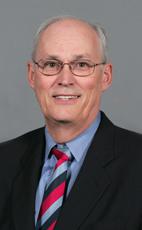Mr. Speaker, I do not want to be totally dismissive of the NDP's position about floor crossing, but I want to point out a few facts.
Probably one of the greatest leaders of any time was Sir Winston Churchill and he crossed the floor I believe at least two times. We would be a lot worse off if we had not had Sir Winston Churchill and his impact on history.
I want to turn to Saskatchewan. The Saskatchewan Party was formed in the late nineties with eight MLAs. Four members from the Conservative side and four from the Liberal side left their parties to create the Saskatchewan Party. It was my point at that stage that the people in the constituencies would decide that issue and in 1999 they overwhelmingly put these eight MLAs back in office with large majorities.
However, lo and behold the Romanow government, which barely won that election, brought in three Liberals. There was Mr. Melenchuk, who became the finance minister, another fellow who became the speaker of the House and one other member. He needed the Liberals to maintain the balance of power. In the next provincial election after that, and Mr. Romanow was leader of the NDP government, all three of these Liberals were trashed at the polls. They lost their seats.
The voters in my opinion are the ultimate judge of these matters. They did not seem to think it was a big deal with the Saskatchewan Party. They give it a big endorsement. However, they gave Sir Winston Churchill obviously a big endorsement in British history. Obviously, in the NDP case in Saskatchewan, they were rather ticked off because they threw all three of these people out.
It is up to the voters in the final analysis. That would be my comment. If the member wants to react to it, that is fine.

